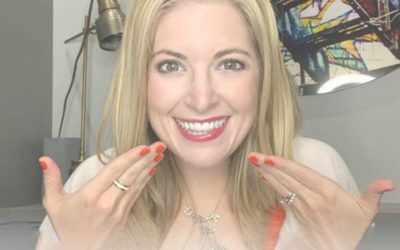How Many Baby Teeth Before You See The Dentist? Just One!
Beyond all the noble goals listed by the AAPD (see my last blog) as reasons to establish a dental home by a child’s first birthday or first tooth, there are really two overriding good reasons to bring your child into a dentist this early. The first we have just touched on – we’ll call it building a better dental patient. The biggest fears we encounter on a daily basis in a pediatric dental office is the fear of the unknown. Most kids – and many parents – don’t know what a filling is, don’t understand what freezing is for; don’t know why we take xrays, and it is this ‘not knowing’ that frightens many of us. The strange smells, the high pitched whirl of the hand piece, the feeling of water being squirted into and sucked out of your mouth are all very unnerving the first time but become very comfortable and benign once a child knows what to expect and how it feels. And that is the goal, to slowly and steadily, one visit at a time, introduce all the elements of a complete dental visit to the child.
How Often do I change my Toothbrush? The answer may surprise you.
To progress from a mirror and probe at age one, and add in the suction or “Mr. Thirsty”, and air water syringe or “Squirt Gun” at age two, and then including xrays or “skeleton pictures” of teeth by age three. By the time too many children visit a dentist for the first time at age four or later and have already been instilled with the idea that something weird, invasive and potentially painful, those who have been exposed to the dental routine by their first birthday already have three years of experience and six or more simple and productive visits under their belt.
The strange smells, the high pitched whirl of the hand piece, the feeling of water being squirted into and sucked out of your mouth are all very unnerving the first time but become very comfortable and benign once a child knows what to expect and how it feels.
The second stems from a philosophy of oral care. If you believe that you go to the dentist to make sure nothing is wrong, then maybe a first visit at three years old makes sense. But if you believe, as I do, that going to the dentist is a step to ensure complete dental health, to learn how to properly provide oral care for your child, to see that everything is right, then visiting by the first birthday is the way to go. In the same way that babies are seen by their family doctor or pediatrician many times throughout the early formative years for “well baby visits” very young children should do the same with the dentist. You don’t go to a Well Baby visit to make sure you child doesn’t have measles; you go so that you ensure they are as healthy as they can be. The absence of disease is not health. Health is a state all of its own. By the same token we don’t visit the dentist to avoid disease, we go to ensure health.
The absence of disease is not health. Health is a state all of its own. By the same token we don’t visit the dentist to avoid disease, we go to ensure health.
So if you had planned on only bringing your child to the dentist “once they start school” or “start grade school”, or “can sit quietly”, or whenever the receptionist at your dental office tells you to, consider the opportunity you are passing up. Think about the leaning possibilities on how to provide optimal oral health for your child, the confidence and comfort you can help foster in your child, the dental patient skills you can help to build, and the lifelong positive healthy habit and attitude you can help to form. Think about it carefully. How many baby teeth does your child need before visiting the dentist? Think first tooth or first birthday, and start your child on the path to a lifetime of excellent oral health.
Want to read more on dental health for children and tips for brushing toddler teeth?










